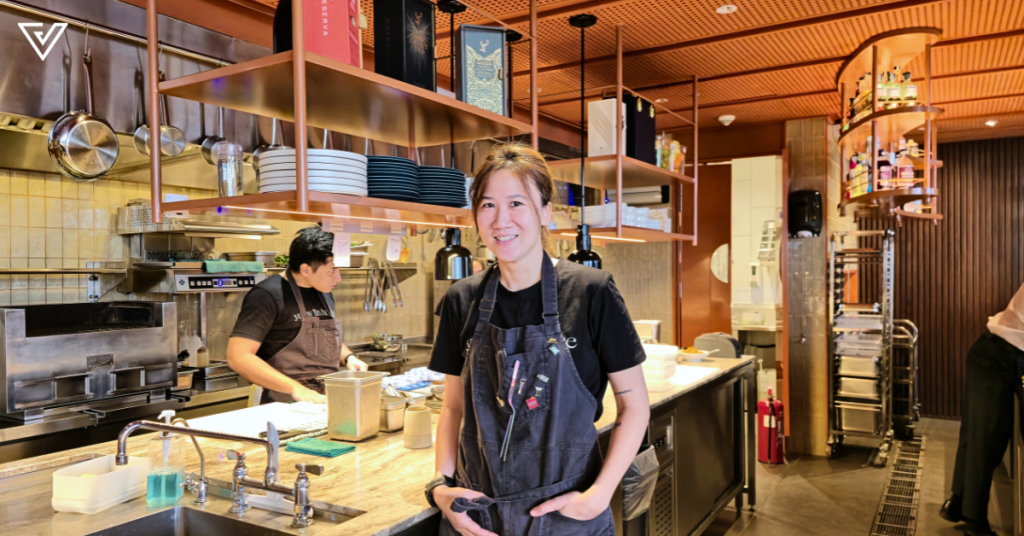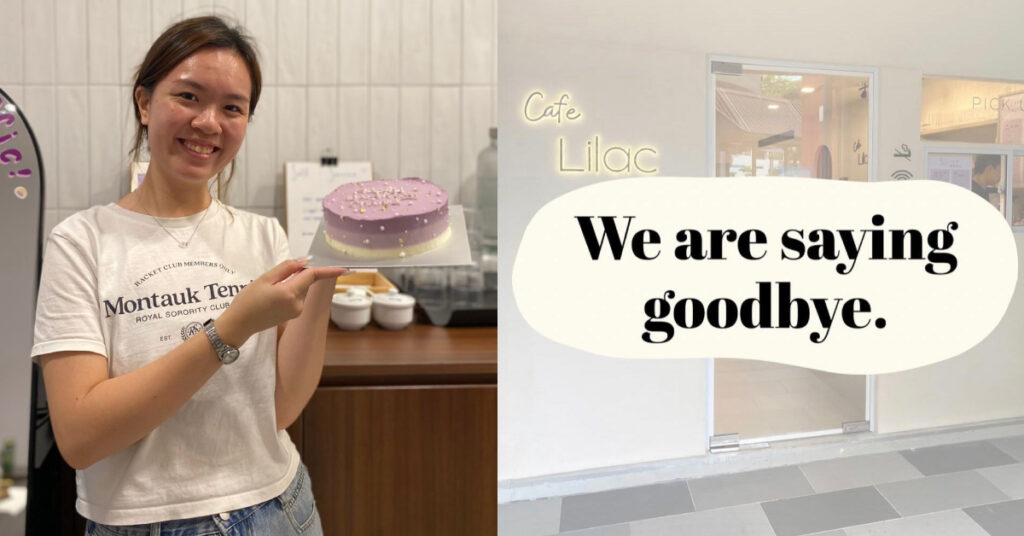“Something smells good,” was the first thought on my mind as I entered Yellow Fin Horse.
It wasn’t the first time I’ve set foot in the restaurant located on the top floor of Else Kuala Lumpur, having dined there last October last year during a workcation at the hotel.
This time, though, I arrived hours before dinner service with the goal of talking to the head chef, Jun Wong.
Look up Jun’s name and you’ll find articles raving about her cooking, touting her as one of KL’s best chefs.
But behind the accolades and labels, though, who is Jun?
Falling into food
“In terms of eating, I’ve always been interested in food,” she shared. “I grew up in a food-oriented family, not in the sense that we were in the business, but my mum and dad were from Penang.”
But when it comes to the profession of cooking, that was something that Jun “fell into”.
“I was not interested in culinary at all. I was actually just lost and wanted to have some friends in uni,” she admitted. “My best mate did a hospitality course, so I joined her.”
During her internship, she did placements in all the departments within the hotel, but her favourite was the kitchen.
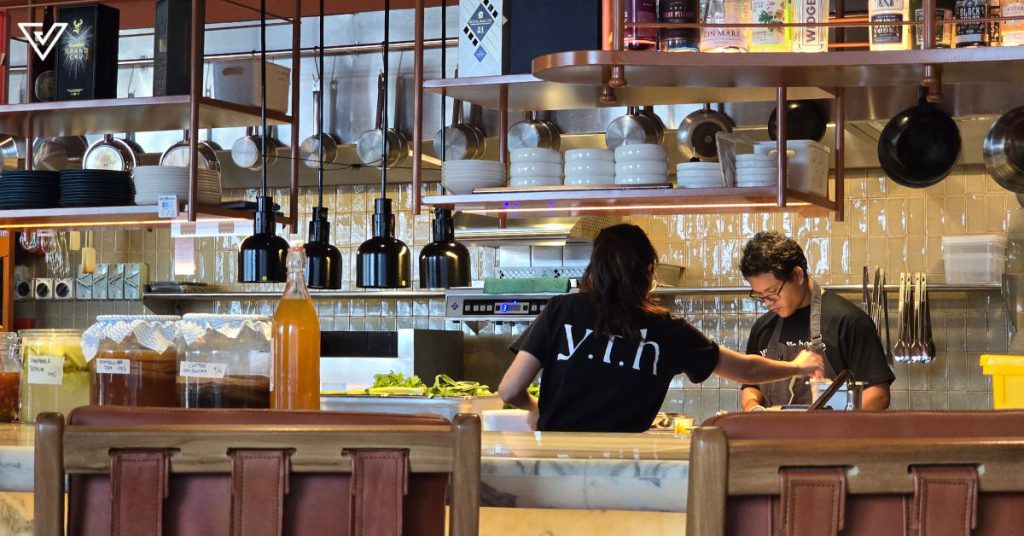
Somewhat on a whim, she decided to pursue it. But with time, her passion for the craft grew.
Although she may be considered a late bloomer, she believes this actually stoked the flame of her craft.
“I want to play catch-up,” she expressed. “I had this pressure on myself, but I guess it was a good thing because it was a driving force for me to just work harder and learn faster.”
Navigating the scene was challenging, but Jun shared that the stars were aligned in her favour, having met the right mentors at the right time.
In her earliest stint, she worked with Chef Takashi of Cilantro Restaurant & Wine Bar. Under his tutelage, she honed her basics. This solid foundation allowed her to successfully take on her next job at the three Michelin-starred Robuchon au Dôme in Macau.
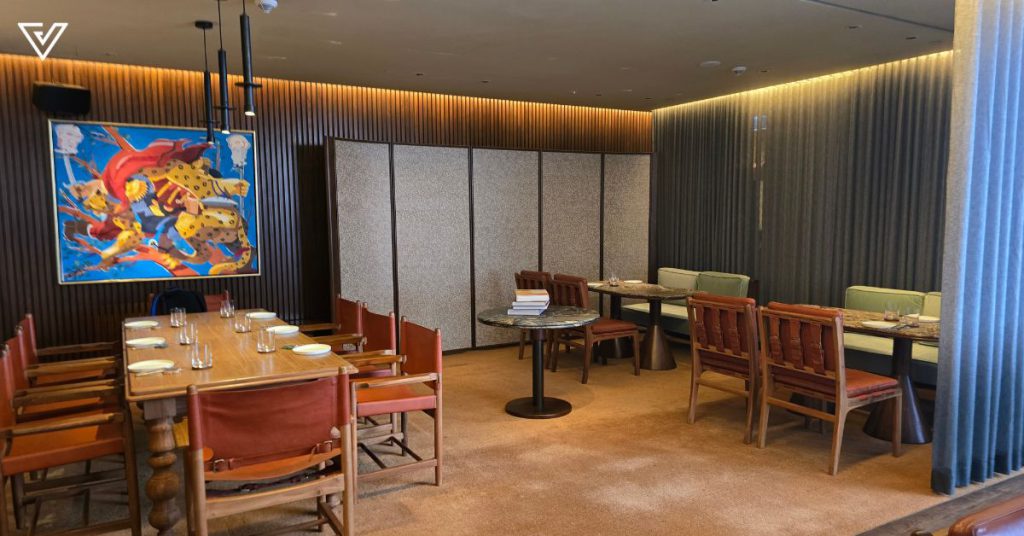
In a three Michelin-starred French restaurant, work culture is tense, whereby the team never questions the chef. “It’s yes chef, and yes chef,” Jun described.
Although it was difficult, it came at the right time for her. She said if that were her first experience in the culinary world, she would’ve quit.
Thankfully, she didn’t. Today, Jun has been in the industry for a decade and a half. After spending her first four years in Malaysia, she went on to work in Sydney, Macau, Tokyo, and Hong Kong.
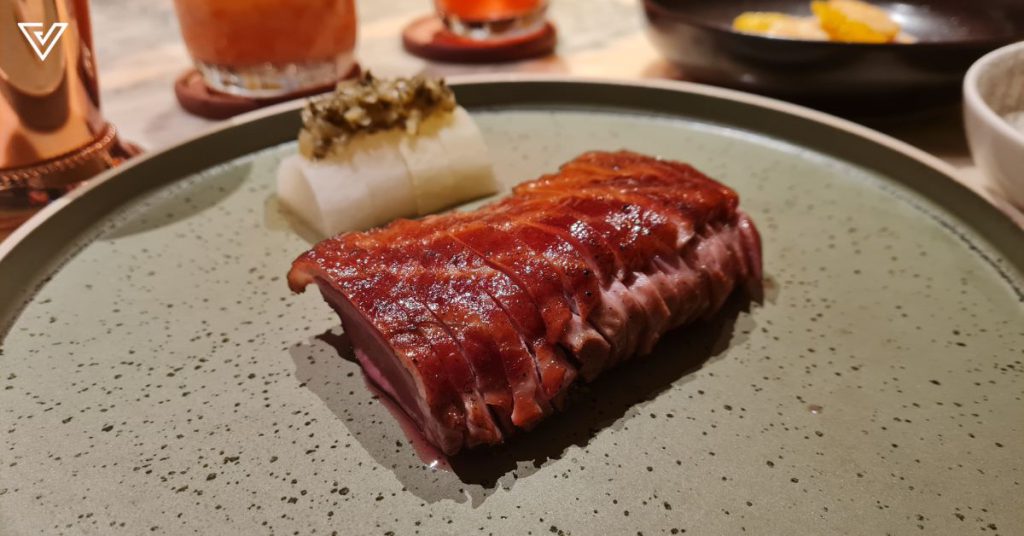
“It was pretty much wherever work may take me for the first couple of years I was away,” she explained. “It didn’t really matter where it was, because it would be a 12 to 16-hour workday anyway, so wherever I was, I was just looking at the interior of a kitchen.”
So, why return to Malaysia in 2017?
Returning to her roots
“Coming back was unplanned,” Jun revealed. “I just decided to take a hiatus from Australia after years in the career and a bit of burnout.”
So, Jun came back to Malaysia and took on a job at a restaurant, without intentionally meaning to stay for long. But before she knew it, the pandemic happened, and there she still was.
Towards the end of 2021, Jun quit her job. Jaded with the industry, she even contemplated becoming an educator, or leaving the industry completely to volunteer in NGOs.
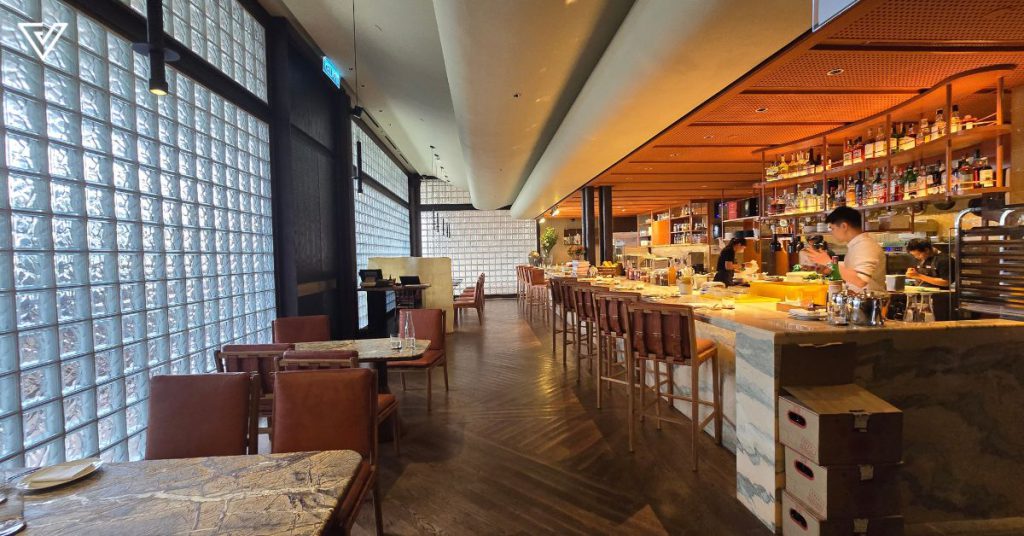
As soon as the borders opened, she packed her bags and went travelling across Europe. Dining in various countries at Michelin-starred and 50 Best restaurants, she realised there was so much potential in Malaysia.
What’s lacking locally is the confidence to promote and market oneself, perhaps due to our reserved culture. This is most obvious with the guest-facing sector of hospitality who often are viewed and view themselves as a second-class citizen.
She couldn’t just leave like this, Jun realised.
With this epiphany, Jun reconnected with Javier, the founder of Else, once she came back to Malaysia. He had scouted the chef previously, but unsure of her future, she had initially declined the offer.
Speaking with Javier and Justin, the owner of the hotel, Jun learnt of the duo’s vision for Else, which aligned with her philosophy—to create a new hotel that redefines hospitality.
Going back to basics
Described as elemental cooking, Yellow Fin Horse’s cuisine is very much about open-fire cooking, being ingredient-driven, and making things from scratch wherever possible.
“The simplest way to explain our cuisine to my team is, if everything breaks down in the kitchen and there’s no electricity, we can still execute it. We can still cook,” Jun said.
“There’s a place for a lot of techniques and a lot showcased on the plate, but ours are more reserved in terms of there’s a lot work behind the scenes, like aging, smoking, and fermentation.”
While this work may not translate to something fancy on the plate, it adds a lot of depth.
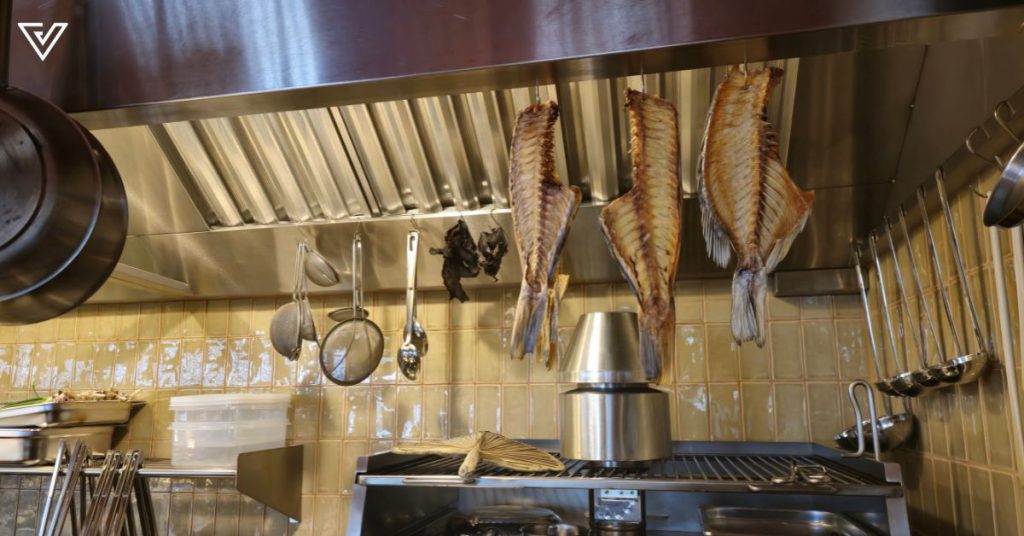
But, with how good the Yellow Fin Horse’s food is, I was surprised to find that it only has 18 reviews on Google—a number that feels like a crime.
“Fortunately and unfortunately, the type of clientele that we have are not the kind to post a lot,” Jun explained. “Human nature is, unless there’s something to complain, they rarely post about it.”
On top of that, being located in a hotel (and in Chinatown, on top of that), Yellow Fin Horse lacks accessibility and visibility.
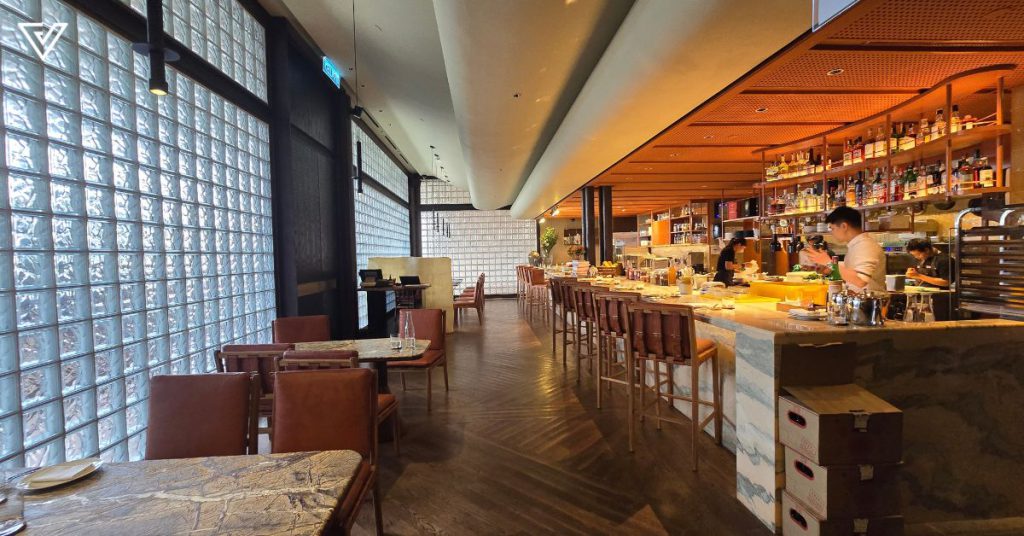
A bit more stimulation would be preferable, Jun said, but she doesn’t want to attract the Instagramming, trend-chasing crowd either.
“We want to be very prudent where and what platform we’re on, because we also want to create an image or direction where it appeals to the demographic we’re looking at,” she said.
That demographic is the well-travelled, exposed crowd with fairly comfortable disposable income. Essentially, people who are in the know.
But are there that many people who fall into this category in Malaysia? People who have an appetite for her level of cooking? To me, Malaysian palates, compared to countries like France, are less matured—present company included.
“I wouldn’t say they’re less refined. I grew up on Village Park Nasi Lemak, and that’s the breakfast of champions. Good food tastes good, there’s no two ways about it,” she said.
To her, the issue isn’t an unrefined palate. Rather…
Elevating Malaysia’s culinary scene
“I’m gonna get so much flak for this,” she pre-empted. “But they are quite spoilt.”
In places like Australia, Jun said that guests understand that it’s their onus to do their homework before going to restaurants. This isn’t true to Malaysia, where diners often have a sense of entitlement when treating chefs and service workers.
“I’m not forgetting I’m Malaysian as well,” she clarified. “I’m just hoping we understand this needs to change.”
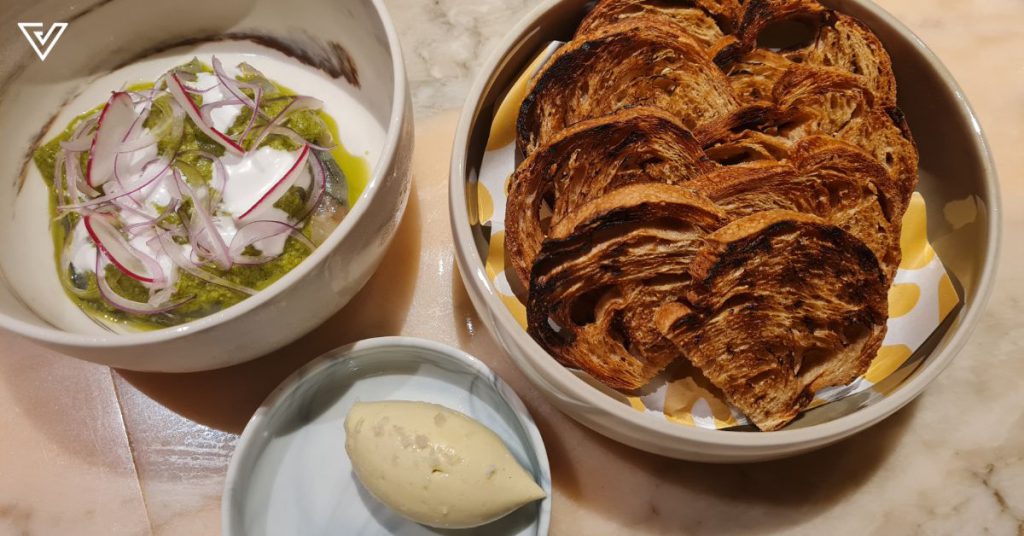
But this change doesn’t happen overnight. Jun believes that locally, pioneers like Darren Teoh of Dewakan have been pushing the envelope on this front, spending years in the industry without recognition, being labelled by some as arrogant.
“He’s paved the way for the rest of us,” she said. “We’re here to continue his job, and it’s not done.”
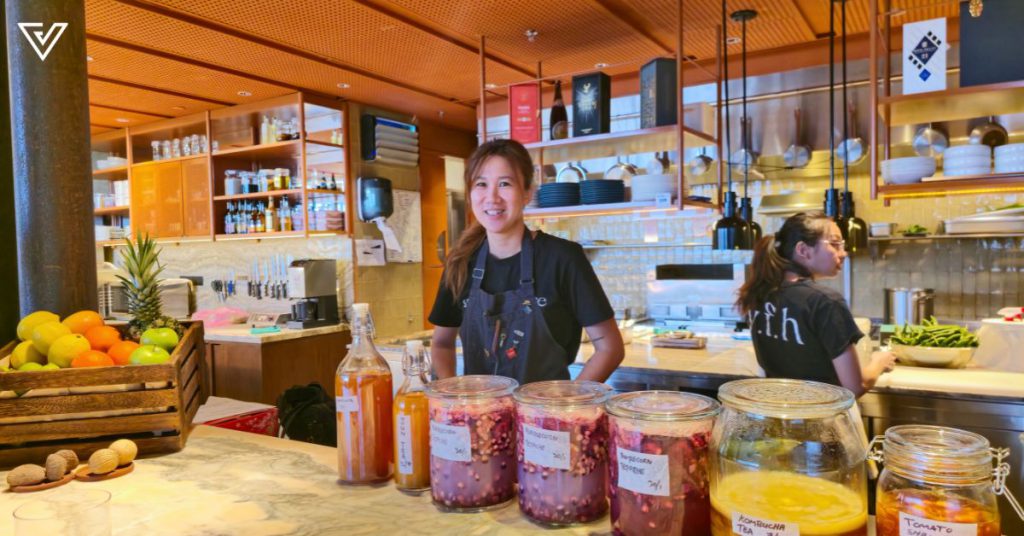
It’s a generational change, she said. One that she hopes her team will carry on when they come out and become the head chefs and restaurant managers of tomorrow.
“We’re a little bit behind in terms of progress, but at least there’s progress,” she said. “It’s not one person, but it’s the entire industry.”


